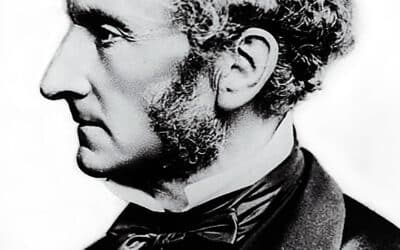In an era marked by economic uncertainty and inflation, the insights of Friedrich Hayek, the renowned Austrian economist, resonate more strongly than ever. Hayek’s essay, “Choice in Currency: A Way to Stop Inflation,” offers a compelling argument for the denationalization of money, advocating a system that allows individuals the freedom to choose their own currencies. This concept, rooted in Hayek’s broader philosophy of spontaneous order, holds significant relevance in addressing contemporary inflationary challenges.
Hayek’s advocacy for choice in currency stemmed from his recognition of the power of market forces to foster efficiency and innovation. In “Choice in Currency,” he argued that a competitive system of currencies, driven by the forces of supply and demand, would incentivize monetary stability and curb inflation. By allowing individuals to select the currency they deem most reliable, Hayek envisioned a decentralized monetary system that would naturally regulate itself, much like other markets governed by spontaneous order.
Central to Hayek’s perspective is the idea that knowledge is dispersed throughout society, and no central authority can possess all the information necessary to make optimal decisions. This notion is elucidated in his seminal article, “The Use of Knowledge in Society,” where he highlights the limitations of central planning and the superiority of decentralized decision-making processes. Hayek recognized that in a complex and dynamic economy, individuals possess unique local knowledge that guides their actions and enables them to respond swiftly to changing circumstances. In the context of monetary policy, Hayek’s insights illustrate why a single monetary authority will be unable to accurately gauge the diverse needs and preferences of individuals and businesses across a vast and diverse economy.
Contemporary economic conditions provide a stark reminder of the limitations of centralized monetary control. In recent years, global inflation rates have surged, exceeding the already inflationary targets set by central banks such as the Federal Reserve.
Hayek’s proposal for choice in currency offers a compelling alternative to the current monopolistic model of monetary authority. By introducing competition into the realm of money, individuals would have the freedom to seek out currencies that offer stability and reliability, fostering a more resilient financial ecosystem. Moreover, the proliferation of digital technologies has made the implementation of multiple currencies more feasible than ever before, opening the door to innovative solutions beyond traditional fiat currencies.
Critics of Hayek’s ideas often raise concerns about the potential for instability and fragmentation in a system of competing currencies. However, Hayek’s concept of spontaneous order, as already discussed, suggests that decentralized systems possess inherent self-regulating mechanisms that promote equilibrium over time. Rather than viewing competition as a source of chaos, Hayek correctly saw it as a catalyst for progress and adaptation, driving continuous improvement and innovation.
In conclusion, Friedrich Hayek’s advocacy for choice in currency and his insights into spontaneous order offer valuable guidance for addressing contemporary inflation concerns. By embracing a decentralized approach to monetary policy, grounded in market competition and individual choice, societies can mitigate the risks of inflation and foster greater economic resilience. As the debate over monetary reform intensifies, Hayek’s ideas serve as a timely reminder of the enduring relevance of classical liberal principles in navigating complex economic challenges.
And so while in an ideal world the Federal Reserve wouldn’t exist, eroding its power and ability to undermine our well-being and society is as simple as revoking its monopoly, undermining it by revoking legal tender laws and the like. As Hayek wrote in “Choice in Currency”:
“What is so dangerous and ought to be done away with is not governments’ right to issue money but the exclusive right to do so and their power to force people to use it and to accept it at a particular price. This monopoly of government, like the postal monopoly, has its origin not in any benefit it secures for the people but solely in the desire to enhance the coercive powers of government…All history contradicts the belief that governments have given us a safer money than we would have had without their claiming an exclusive right to issue it.”








